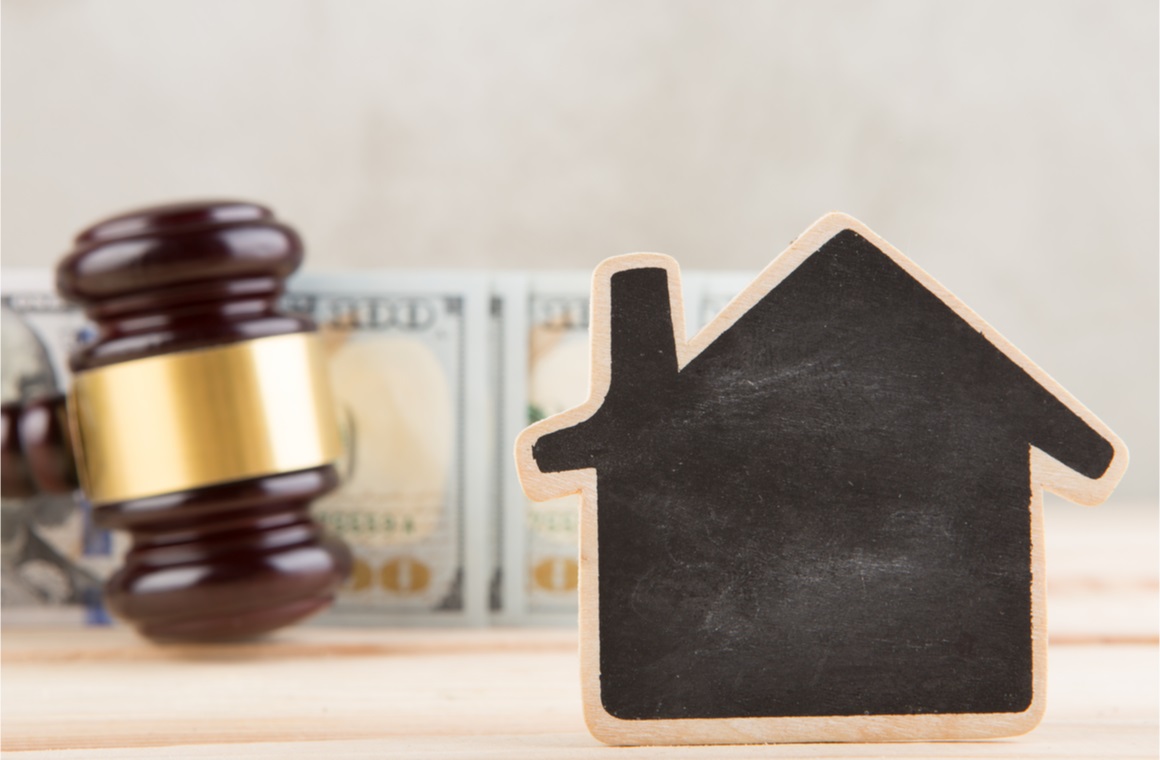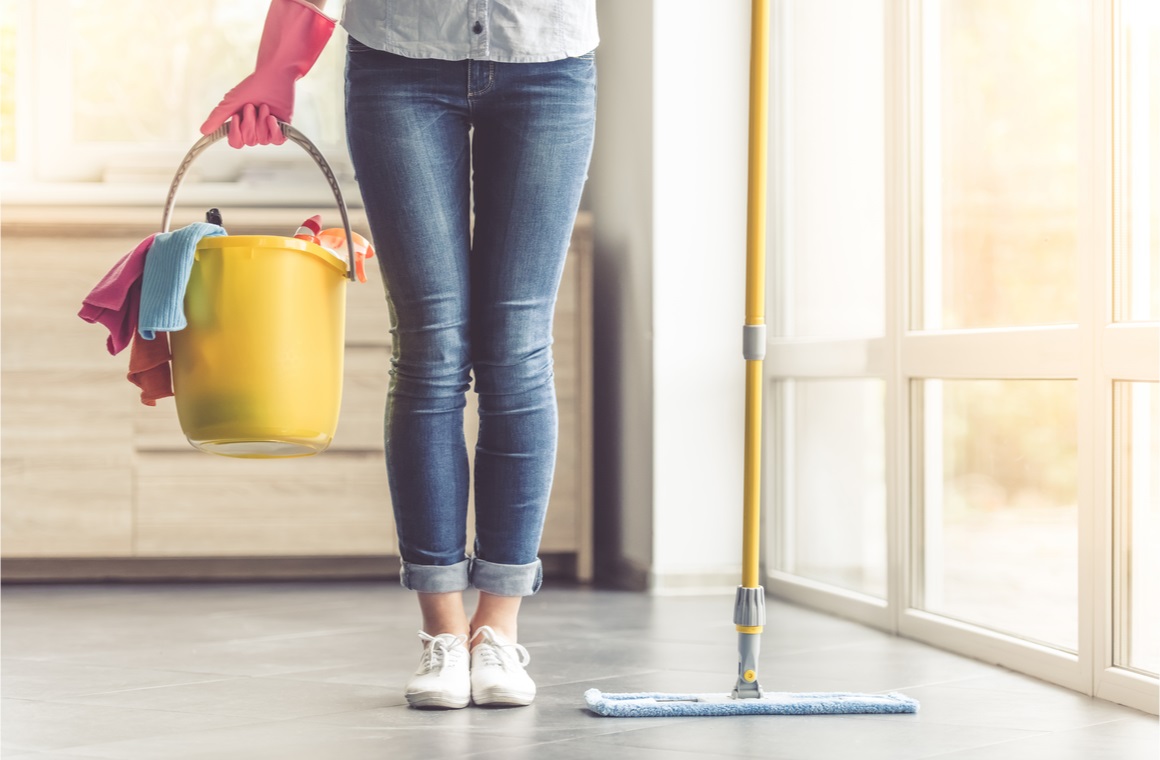In a perfect world, tenants pay their rent and bills on time and care for your rental property as if it’s their own. However, we don’t live in a perfect world, and many landlords have to deal with bad tenants, and for that reason, security deposits ensure that tenants follow all the terms of the lease agreement. It offers an extra layer of protection for the landlord, and it reassures them that the tenants are going to keep the property in good condition.
Even with security deposits, it is not always a guarantee that the tenant will care for the property, but at least you are somewhat covered for potential damage to the property. It might also be the case where the landlord might want to keep the security deposit for the wrong reasons. To prevent an argument between the tenant and the landlord over the security deposit, we will go over some of the situations in which landlords are entitled to keep the tenant’s security deposit.
What is a security deposit?

A security deposit is a sum of money collected by the landlord at the beginning of a tenancy, and this amount is separate from rent. The security deposit is typically held until the end of the tenancy when it is fully refunded to the tenant, or it is held by the landlord to cover tenant-caused damages or unpaid rent. The amount withheld by the landlord at the end of the lease agreement can vary depending on how costly the damages are or the total amount of unpaid rent.
If the tenant took good care of the property and no damages were caused to the rental, the landlord must refund the total amount of the security deposit. Some state laws limit the amount of security deposit, and typically that limit is one or two months’ worth of rent. Often, security deposit laws specify how and when landlords must return the tenants’ deposits. For example, some states might determine that any security deposit must be returned within 30 days after the end of a tenancy and include a full accounting of the reasons for any deductions.
Reasons landlords can withhold your security deposit.
A dispute between the landlord and tenant over security deposit can often lead to misunderstanding, and one of the other parties might overlook some of the landlord-tenant rights. Of course, every state has its specific security deposit laws that both tenants and landlords must comply with. However, a couple of common reasons why a landlord is entitled to hold on to the security deposit or to deduct from it. Here are some of them.
Early termination of the lease

One of the reasons that give the landlord the right to hold on to the security deposit is the early termination of the lease. If the tenants break the lease, the landlord is entitled to hold all or a portion of the security deposit to cover the costs associated with early lease termination. However, keep in mind that the wording on the lease matters as well as the landlord-tenant laws in the state where the lease was filed. Without an early termination clause on the lease signed by the tenant, you are unable to keep or deduct from the security deposit.
An early termination clause typically says that the tenant is responsible for the rent owed for the remainder of the lease if they don’t give a 30-day notice before the move and if the lease is terminated before the one-year lease agreement. If things are being taken to court, the tenant might need to pay court costs or attorney fees if legal actions need to be taken against them.
Nonpayment of rent

One of the most common reasons for landlords to hold the money from the security deposit is for the nonpayment of rent. Many states allow you to keep all or a portion of the security deposit if the tenant doesn’t make the monthly rent payment. Keep in mind that nonpayment of rent is considered a breach of the lease. When a tenant doesn’t fulfill their contractual obligations to pay their monthly rent, the landlord can keep a portion of the security deposit necessary to cover the lost rent.
Maybe the reasons behind not paying the rent have to do with job loss, health issues, or roommates who don’t pay their share of the rent. Even though these reasons might be perfectly valid, the tenant is still breaking the lease terms by not paying the rent, making them prone to losing their security deposit.
Damage to the property

Arguably one of the most common reasons why tenants and landlords argue over security deposits are property damage. Landlords are entitled to all the security deposit, or a portion of it, if the tenant caused damage to the property. However, there is a difference between damage and normal wear and tear, and this is where most of the time, landlords and tenants can’t agree upon what is considered damage and what is normal wear and tear.
Landlords are supposed to use security deposits for cleaning or repairs to restore the unit to its former condition before the renter moved in. However, a certain level of damage happens when the place is inhabited over time that is considered ordinary wear and tear, and therefore, tenants shouldn’t have to pay for that. Landlords may use deposits for repair and cleaning that go beyond the normal wear and tear.
Here are some examples of ordinary wear and tear:
- Few minor stains on the carpet
- Small nail holes in the walls
- Small amounts of mildew formed in grout lines
- Dirty grout
- Loose handles on doors, kitchen or bathroom cabinets
- A reasonable amount of dirt, grime, and dust on the floors, appliances, or walls
- Tanish on bathroom fixtures
Also, if you are wondering what might be considered damage, here are some examples:
- Large holes in the walls
- Water damage to the hardwood floors
- Big stains on carpets
- Damaged or missing smoke or carbon monoxide detectors
- Broken bathroom vanity
- Broken doors and windows
- Missing outlet covers
- Not returning the keys at the end of the tenancy
Unpaid utility bills
Every landlord wants to lease to reliable and long-term tenants who will care for their property as if it’s their own and pay their bills on time. However, unpaid utility bills make a tenant prone to security deposit deductions similar to unpaid rent. Tenants may not be entitled to the return of their deposit if they have unpaid utility bills. In this case, the landlord can keep the security deposit to cover the neglected utility bills. As a tenant, you might often think that your utility bills are higher than they would normally be and therefore refuse to pay that much. An easy way to go about this situation is to ask your landlord to show you the receipts or make the payments yourself directly to the providers. That way, you can avoid future misunderstandings and not compromise your relationship with the landlord.
Cleaning costs

The landlord might be entitled to keep the security deposit for cleaning costs in certain circumstances. Typically if a tenant leaves behind a garbage bag, it is unreasonable to charge them a portion of the security deposit to cover that labor. However, if the amount of cleaning required to bring the place in its initial condition is excessive, then the landlord is entitled to deduct it from the security deposit.
For example, suppose the tenant left behind trash all over the apartment, numerous personal belongings, and food in the refrigerator. In that case, the landlord may be able to keep a portion of the security deposit to cover your expenses and the labor required to clean the unit. Another example has to do with tenants that own pets. Pampering your pet with home-inspired ideas might bring joy to your pet but not so much to your landlord, who might have to deal with carpet cleaning after your pet used it as a toilet.
Conclusion
As a landlord, you probably had to deal with good tenants as well as bad tenants over the years. It’s hard to know beforehand who you are welcoming in your apartment: therefore, a security deposit might help you account for a lot of the cleaning, missed payments, or damage that your tenant might cause.
You might even go a step further and weed out the bad tenants through tenant screening or if you decide to rent out your unit through a realtor. Get in touch with real estate agents near you for more details about renting.
As a tenant, you shouldn’t view the security deposit as a burden since getting the money back in full might come in handy when you least expect it. Getting the security money back shouldn’t be something you should worry about if you are a good tenant and care for the property. Hopefully, this article will help you understand when the security deposit is refundable and help you manage the deposit properly.
If you like our content, you can help us by sharing it on your social media platforms. Don’t hesitate to leave a comment and let us know about your experiences as a landlord dealing with tenants.











